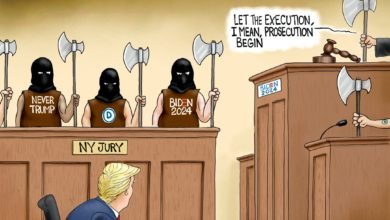Once again, religion will take center stage at the nation’s highest court

On Monday, the Supreme Court agreed to hear a case that will help to define the rights/protections afforded to institutions/businesses based on their religious beliefs. The case at issue is Fulton v City of Philadelphia.
More particularly, the Supreme Court agreed to hear an appeal by Catholic Social Services (“CSS”), an agency that contracts with the City of Philadelphia to provide homes for abused and neglected children. The contract included language “prohibiting CSS from discriminating due to race, color, religion, or national origin, and it incorporated the City’s Fair Practices Ordinance, which in part prohibits sexual orientation discrimination in public accommodations.”
In 2018, the city learned that CSS would not consider same-sex couples as foster parents and subsequently ended its contract with CSS. As a result, CSS sued the city of Philadelphia and sought preliminary injunctive relief. Specifically, CSS sought an order requiring the city to renew their contractual relationship while permitting CSS to turn away same-sex couples who wish to be foster parents. This request was denied by the district court and subsequently appealed.
According to CSS, its religious teaching did not allow it to promote same-sex couples as foster parents because doing so would violate its religious beliefs relating to marriage and run afoul of its rights under the Free Exercise Clause. CSS also argued that the city’s conduct was unconstitutional because the city “was motivated by ill will toward a specific religious group or otherwise impermissibly targeted religious conduct.” Finally, CSS alleged that the city’s conduct amounted to a violation of the Establishment Clause, that it violated its freedom of speech rights by compelling it to speak in ways it finds disagreeable and by retaliating against it for engaging in protected speech, and that it ran afoul of the Pennsylvania Religious Freedom Protection Act.
Notwithstanding these arguments, several court(s) disagreed, including the Third Circuit Court of Appeals, based in Philadelphia, which stated:
Per Employment Division v. Smith, 494 U.S. 872, 877 (1990), the Free Exercise Clause “means, first and foremost, the right to believe and profess whatever religious doctrine one desires.”
Thus, the First Amendment obviously excludes all governmental regulation of religious beliefs as such. The government may not compel affirmation of religious belief, punish the expression of doctrines it believes to be false, impose special disabilities on the basis of religious views of religious status, or lend its power to one or the other side in controversies over religious authority or dogma.
Id. (internal citations and question marks omitted) (emphasis in original). Likewise, it forbids government acts specifically designed to suppress religiously motivated practices or conduct. Id. at 877–78.
The Free Exercise Clause does not, however, “relieve an individual of the obligation to comply with a ‘valid and neutral law of general applicability on the ground that the law proscribes (or prescribes) conduct that his religion prescribes (or proscribes).’”
In other words, if a law is valid and neutral on its face and is of general applicability, a person may not choose to violate/ignore it based on the Free Exercise Clause simply because it allows or disallows conduct that runs afoul of his/her religion/religious beliefs.
Moreover, the Third Circuit Court of Appeals also disagreed with the argument that the city expressed/had ill will towards a specific religious group/conduct, stating:
These cases, and similar decisions by our Court, clarify Smith by reaffirming that the government may not conceal an impermissible attack on religion behind a cloak of neutrality and general application. Thus, a challenger under the Free Exercise Clause must show that it was treated differently because of its religion. Put another way, it must show that it was treated more harshly than the government would have treated someone who engaged in the same conduct but held different religious views.
CSS’s theme devolves to this: the City is targeting CSS because it discriminates against same-sex couples; CSS is discriminating against same-sex couples because of its religious beliefs; therefore the City is targeting CSS for its religious beliefs. But this syllogism is as flawed as it is dangerous. It runs directly counter to the premise of Smith that, while religious belief is always protected, religiously motivated conduct enjoys no special protections or exemption from general, neutrally applied legal requirements. That CSS’s conduct springs from sincerely held and strongly felt religious beliefs does not imply that the City’s desire to regulate that conduct springs from antipathy to those beliefs. If all comment on religiously motivated conduct by those enforcing neutral, generally applicable laws against discrimination is construed as ill will against the religious belief itself, then Smith is a dead letter, and the nation’s civil rights laws might be as well. As the Intervenors rightly state, the “fact that CSS’s non-compliance with the City’s non-discrimination requirements is based on its religious beliefs does not mean that the City’s enforcement of its requirements constitutes anti-religious hostility.”
Finally, the court also rejected the arguments based on the Establishment Clause, freedom of speech, and the Pennsylvania Religious Freedom Protection Act.
The Supreme Court will hear arguments relating to this case during its next term. Given the court’s conservative majority, it will be interesting to see how the justices ultimately rule on this important case, which could have far-reaching implications as to when, and under what circumstances, businesses may claim a religious exemption from state or local laws that ban certain types of discrimination.
This article is intended for informational purposes only. It is not intended to solicit business or to provide legal advice. You should not take, or refrain from taking, any legal action based upon the information contained in this article without first seeking professional counsel.




